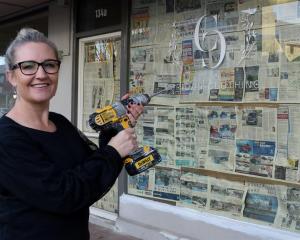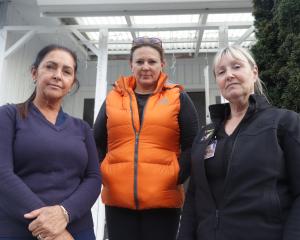
Many parts of society are crying out for assistance and with just cause.
The financial and social impact will be significant and have a long-lasting impact on us and our economy.
The board of the Otago Chamber of Commerce and I also believe that it is an opportunity for local government and local businesses to work together to get a better outcome for our small part of paradise.
What can local government do to make a difference to the Otago business community?
■Continue to spend during and, more importantly, after the crisis. Central government has provided short-term relief for many business owners with the wage subsidy scheme. However, when this subsidy finishes, the real impact will start to be felt by the business community.
■Buy local and prioritise their spend with local businesses. The procurement policies will have to change and ensure that local businesses get an opportunity.
■Continue to invest in the infrastructure of the city/districts and our community. We do not want to see the stopping of projects across the region. This is actually an opportune time to fast-track new projects that will add value to the city in the longer term.
■Ensure that spending, and any additional spending, adds value to the community and the region. We still need to ensure that ratepayers are getting good value for money.
■Promote the city/region within the region/city/country. Domestic tourism is required to partly fill that gap and we all need to work together to get a great outcome for the region as a whole.
■Reprioritise their existing budgets. There are obviously some low-hanging fruits e.g. travel expenditure/sister city relationships/conferences/international marketing etc. It would also be an opportune time to look at other activities and determine if they are required as they are, or if they can be done differently.
■Ensure that they minimise disruption to the businesses that are hurting. This is particularly relevant to retail if they start closing down parts of the city/town or changing parking further.
■Have an economic recovery plan. The plan needs to be developed working with business and the business community. The plans need to be able to change as the circumstances change and they need to be readily available to the wider community so that there is accountability for delivery.
All of the above measures are effectively looking at increasing spending or becoming more efficient. We also believe that we need to ensure that we have an affordable rates increase given the circumstances. We are supporting a 0% rates increase.
The question then becomes — How can we do all of this and still have a 0% rates increase? Councils have three main options:
■Rely on their balance sheets. Councils are asset-rich organisations by nature with many long-term assets. Councils have plenty of headroom to fund greater activity in the short term. The only issue becomes the affordability of additional interest costs. With interest rates at record lows in New Zealand, there is not a better time than the present to increase council spending in the short term and then slow down when the economy has picked back up. This does require a very disciplined approach.
■Sell down non-core or non-strategic assets. Councils have a number of assets that are not strategically important to the city/district. These should be reviewed and, where appropriate, disposed of.
■Review what is essential and the way services are delivered. Unfortunately, this process will take time and would not have the impact required in the short term. It could also slow the recovery if it is not well thought through.
While the current situation may feel like we are in the eye of the storm and that there is no clear way forward, I am hoping that as a region we can all work better together and be able to look back with pride in 18 months’ time and say that we did the best we could for our community and businesses.
■Dougal McGowan is the chief executive of the Otago Chamber of Commerce.













